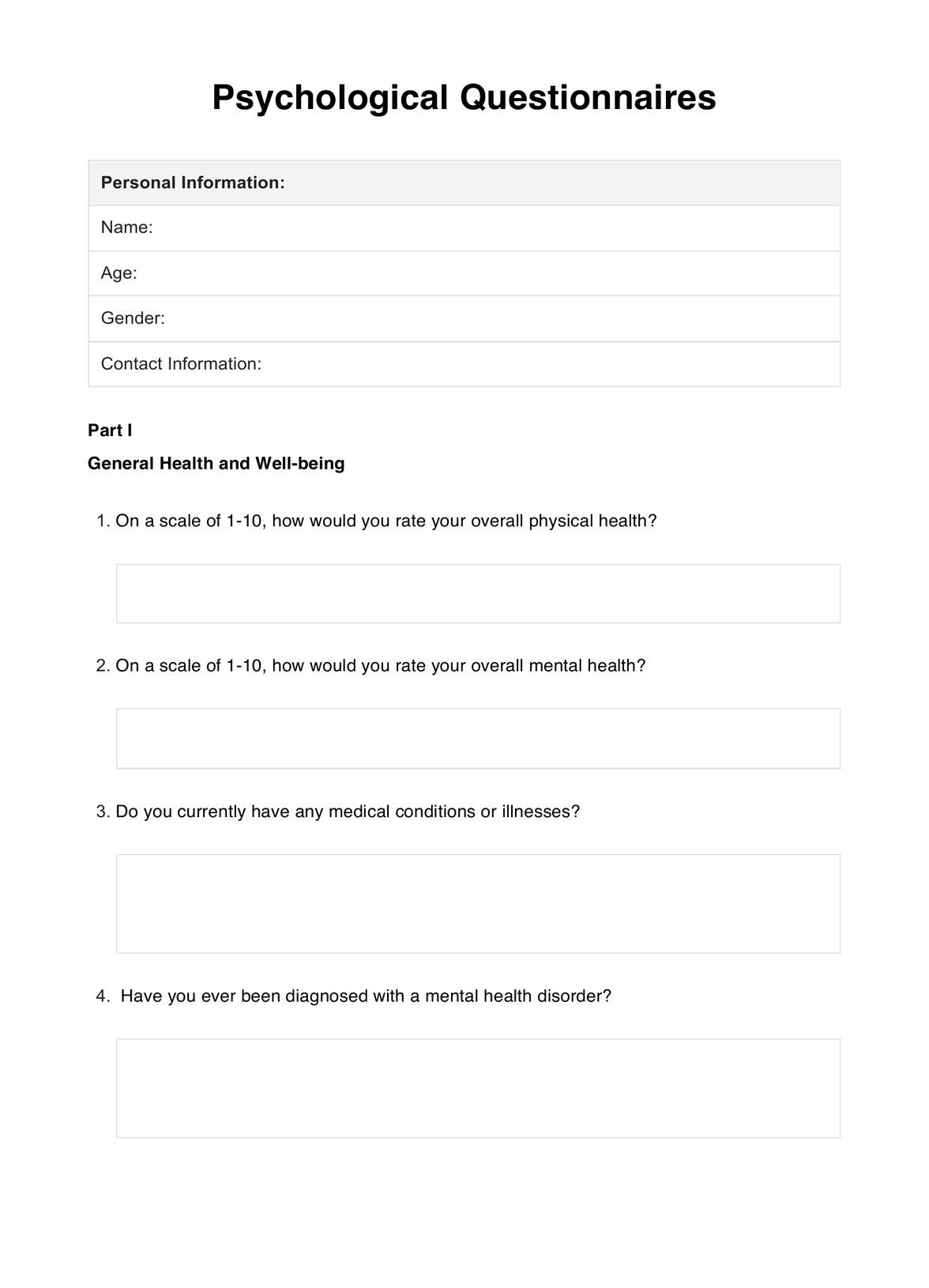Psychological questionnaires serve a wide range of purposes and are utilized by various individuals and organizations. Psychologists rely on questionnaires to evaluate mental health, make diagnoses, and monitor progress. Mental health professionals, including psychiatrists, social workers, and counselors, also employ questionnaires in assessing mental well-being.

Psychological Questionnaires
Explore various psychological assessments to gain insights about your patient. Access our free psychological questionnaires and examples template.
Psychological Questionnaires Template
Commonly asked questions
In clinical environments, psychologists employ questionnaires to evaluate mental health, track progress, and diagnose disorders. Researchers utilize questionnaires to gather data on various psychological topics, such as attitudes and anxiety levels, enabling hypothesis testing and exploring relationships between variables.
Within organizations, questionnaires help assess employee morale, customer satisfaction, and other factors to inform decision-making and enhance products, services, and work environments.
Honesty is crucial when responding to the questions as it leads to more accurate results, despite any concerns about interpretation. It is important to assist the clients when any questions or uncertainties arise.Provide support, answer queries, and help ensure a clear understanding of the questionnaire.
EHR and practice management software
Get started for free
*No credit card required
Free
$0/usd
Unlimited clients
Telehealth
1GB of storage
Client portal text
Automated billing and online payments











